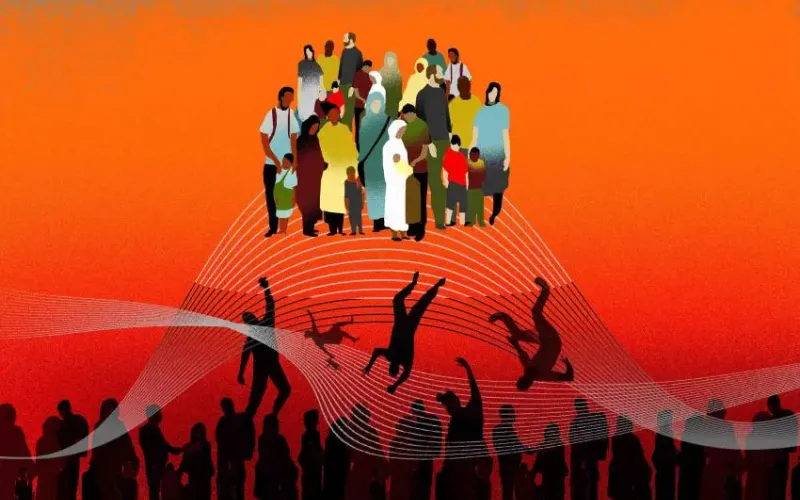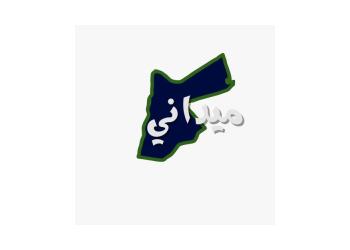World Bank / Jordan: Poverty Targeting Algorithms Harm Rights

- An automated cash transfer program in Jordan developed with significant financing from the World Bank is undermined by errors, discriminatory policies, and stereotypes about poverty.
- Many people in Jordan are not getting financial support because their hardships fall outside an algorithm’s faulty model of poverty.
- The World Bank and the Jordanian government should phase out targeting cash transfers based purely on income and socio-economic status and move toward universal social protection.
An automated cash transfer program in Jordan developed with significant financing from the World Bank is undermined by errors, discriminatory policies, and stereotypes about poverty, Human Rights Watch said in a report released today.
The 74-page report, “‘Automated Neglect’: How The World Bank’s Push to Allocate Cash Assistance Using Algorithms Threatens Rights,” details how an automated cash transfer program in Jordan commonly known as Takaful (a word similar to solidarity in Arabic) profiles and ranks the income and well-being of Jordanian families to determine who should receive support – an approach known as poverty targeting. The program has since been renamed the Unified Cash Transfer Program. Poverty-targeted programs, which the World Bank has funded in Jordan and seven other countries in the Middle East and North Africa, are depriving many people of their right to social security even as they go hungry, fall behind on rent, and take on crippling debt.
“Many people in Jordan are not getting financial support because their hardships don’t fit an algorithm’s rigid model of what poverty should look like,” said Amos Toh, senior technology and human rights researcher at Human Rights Watch. “The World Bank should not let the promise of better data and technology distract from social protection reforms needed to give everyone the chance to lead dignified lives.”
The World Bank and the Jordanian government should phase out targeting cash transfers based purely on income and socio-economic status, Human Rights Watch said. Instead, it should establish a universal social protection system, ensuring that everyone receives income support at key moments throughout their lives.
Human Rights Watch conducted 70 interviews, including interviews with 36 individuals or families who had applied for Takaful and other social assistance programs, as well as social protection experts, civil society groups, activists, and Jordanian government officials. In letters and discussions, the Jordanian government also shared key indicators the algorithm uses to make cash transfer decisions, but declined to provide the full list or the specific weights assigned.
According to Jordan’s National Aid Fund (NAF), the social protection agency administering Takaful, it first assesses whether applicant households have met basic eligibility criteria for the program, such as whether they are headed by a Jordanian citizen and living under the poverty line. For households that make the cut, NAF then applies an algorithm that uses 57 socio-economic indicators to estimate their income and wealth, ranking them from least poor to poorest. Cash transfers are distributed to households deemed poorest, as available funding allows.
NAF emphasized that none of the indicators will, on their own, exclude a household from Takaful; instead, each indicator is assigned a weight that stipulates its relative importance in the targeting process. However, it acknowledged that families that own cars less than five years old or businesses worth 3,000 dinars (US $4,200) or more are automatically disqualified.
Human Rights Watch found that some of these indicators fail to fully capture the economic complexity of people’s lives. Distilling people’s hardships into a ranking that pits one household against another for support also fuels social tension and widespread perceptions of unfairness.
One resident of al-Burbaita in Tafilah, one of the poorest villages in the country, believed her family’s car played a role in the government’s decision to deny them support. “The car destroyed us,” she said. “We use it to transport water and for other needs. But sometimes we don’t have the money to fill it up with diesel.” NAF clarified that owning older cars does not preclude families from support but acknowledged that it factors into the algorithm’s ranking.
The algorithm’s estimate of household income also takes into account the value of small businesses worth less than 3,000 dinars (US $4,200); businesses worth more are disqualifying. An owner of a small tailoring shop in Al-Balad, Amman’s historical downtown, cited his business as one of the possible reasons he did not receive support, even though losses that piled up during the Covid-19 pandemic forced him to take 12,000 Jordanian dinars (US $16,900) in loans to cover his electricity bills, rent, and other basic needs.
Families that consume more water and electricity can also be less likely to qualify for support, under an indicator that analyzes dwelling characteristics. Nearly everyone interviewed about their electricity usage reported using more electricity than the national median. Even the government has acknowledged that most people living in poverty cannot afford energy-efficient, cost-saving appliances such as solar water heaters.
The indicator that gives larger households a higher vulnerability weighting could discriminate against families of Jordanian women married to non-Jordanian men because these women cannot pass citizenship to their spouses or children. The algorithm calculates household size based only on the number of Jordanians in her household.
Human Rights Watch also found that the government is collecting inaccurate and unreliable data about people’s finances, increasing the risk of errors. Multiple people interviewed said that the online application did not permit them to declare living expenses that exceed their income. NAF said that it processes applications so long as declared expenses do not exceed people’s income by around 20 percent. Either restriction fails to capture how people scramble to fill the gap each month, such as by asking relatives for assistance, buying on credit, selling household items, or taking odd jobs.
“The questions asked don’t reflect the reality we exist in,” said a father of two who earns 250 dinars ($352) a month at a coffee shop in Amman but needs more than twice that to pay for electricity, water, food, and other essentials. “Each month, we just trust in Allah and hope we can cover our expenses. Some months, my siblings abroad help out.”
People interviewed also spoke of difficulties applying for the benefit online and withdrawing their payments through e-wallets, as well as understanding and appealing eligibility decisions. These problems were particularly acute for people unfamiliar with digital technology and those living in rural areas.
In response to these findings, the Bank wrote that information systems and technology can facilitate the delivery of social protection programs, but “are not substitutes” for interactions between institutions and people. It added that Takaful “has proven to be amongst the most redistributive and cost-effective poverty reduction programs currently active in Jordan.” The Bank is working with NAF to refine the targeting algorithm and expects to disclose this evaluation in July 2023.
The Jordanian government should urgently reform Takaful and build on existing programs to create a universal social protection system that protects against income insecurity throughout people’s lives, including during common life events such as old age, unemployment, sickness, and caring for dependents. In the meantime, it should fully disclose the targeting algorithm’s decision-making criteria, and conduct regular and transparent audits.
The World Bank should support borrower countries in making the shift to universal social protection, in line with its own commitment to achieve this goal by 2030. This should include financing for relevant technology, such as population registries and vital statistics databases.
“The right to social security should not depend on subjective and error-prone assessments about people’s financial well-being,” Toh said. “The World Bank should finance technology that supports universal social protection, instead of undermining it.”












































